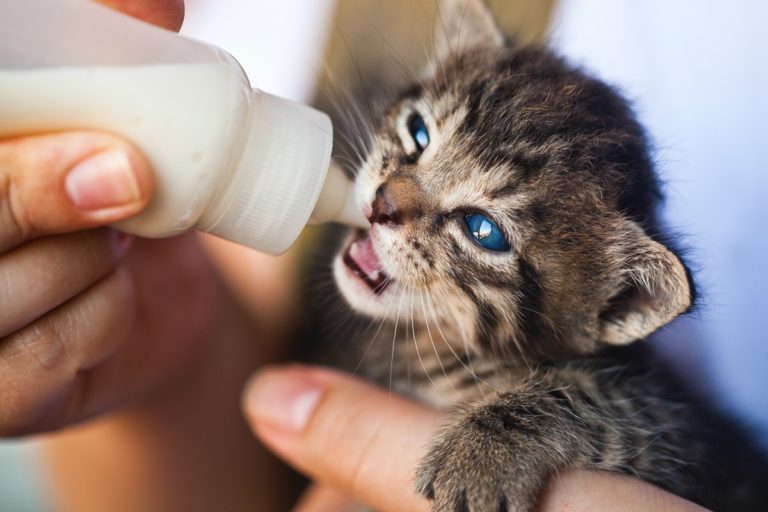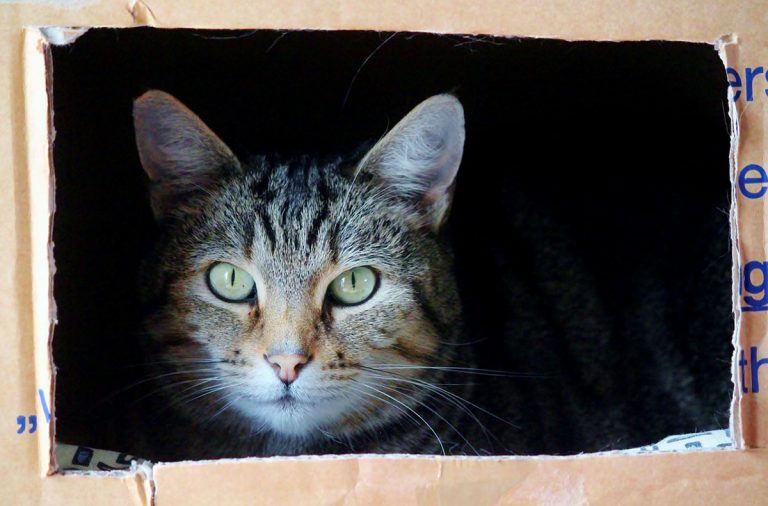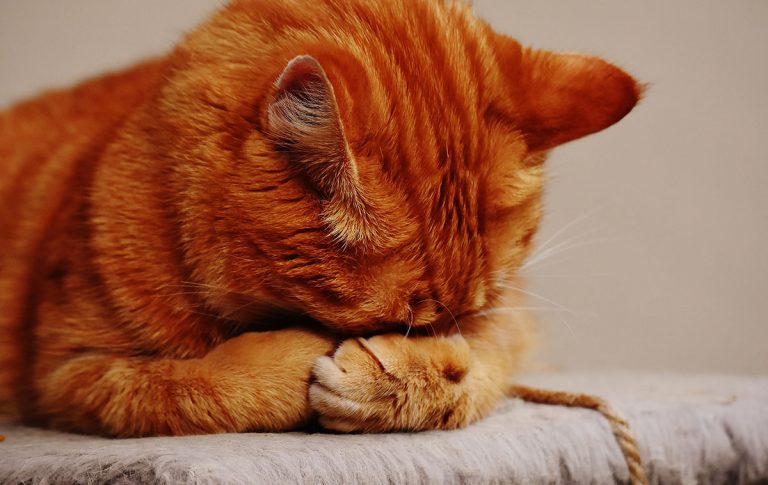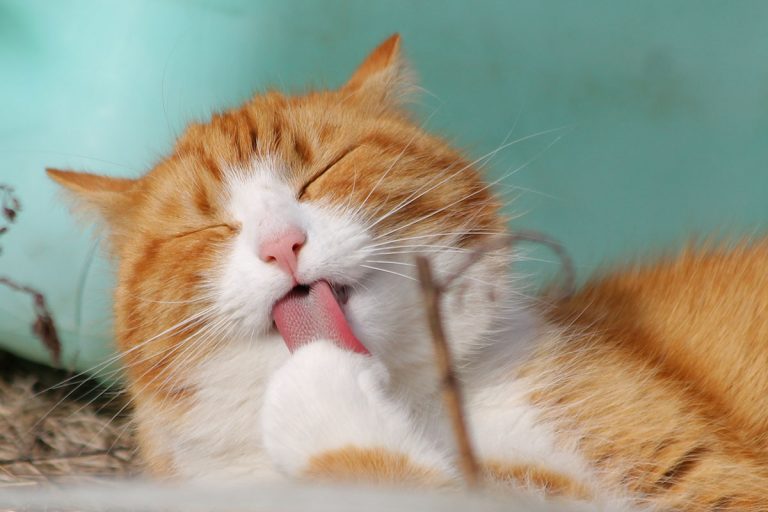Just like human babies, kittens are at risk of contracting all kinds of illnesses. Their immune systems are still developing, so they can’t fight off all viruses. The main difference is that with kittens the diseases they contract can often be life threatening. Not just when they are young, but also later in life. In both cases, vaccinations are the answer.
But what vaccines do kittens need exactly? And how often should they be repeated? Read this guide to find out everything you need to know about kitten vaccinations, and what to do to give your kitty the best chance at a long and healthy life!
DISCLAIMER: This post may contain affiliate links. If you click one of these links and decide to make a purchase, we may receive a small commission. This comes at no extra cost to you and helps to keep the site alive and up to date. If you want more information, please review our Privacy Policy. Thank you for your support!
Do Kittens Need Shots?
First of all, let’s consider the age-old question: are vaccines (for cats) really necessary? I can be short about this: yes, they really are.
While it is true that kittens receive antibodies from their mother’s milk, these are not nearly enough to fully immunize them against all viruses. Moreover, these antibodies are only present in the milk for the first 24 to, maybe, 72 hours. And their immune systems are still just developing at this point. Vaccinating your kitten is the best thing you can do to help them become strong and healthy.
Once they are four weeks old, you can start your kitten’s vaccination schedule. One shot is not enough to reach full immunity, so they have to be repeated once every few weeks until your kitten is 16 to 20 weeks old. This ensures that the vaccines reach full immunization as the antibodies from the Queen’s milk wear off.
It is a common misconception that indoor pets don’t need to be vaccinated. Even though they stay inside, viruses can still spread from other animals through the air, or via our hands or clothing (who have you been petting?), to our precious cats. No matter their age, it is worth keeping your cat’s vaccinations up-to-date to minimize the risk of illness.
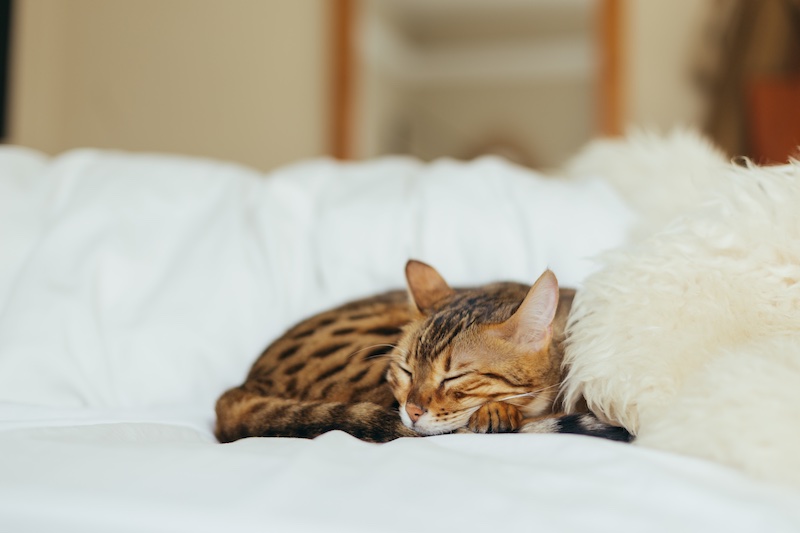
What Vaccines Do Kittens Need?
Cats need two core vaccines: the FVRCP vaccine and the rabies vaccine. Core vaccines means they are considered to be essential for any cat to have.
The FVRCP vaccine is a combined vaccine that contains three live virus components. Live viruses better help your kitten develop immunity against the devastating diseases they cause than dead viruses.
Related Post: Is Pet Insurance Worth It For Indoor Cats?
Is pet insurance worth it for indoor cats? Read this guide to learn about pet insurance for cats and calculate if it is really worth it for your indoor cat.Feline Herpesvirus-1 (FHV-1)
The FVR in FVRCP stands for Feline Viral Rhinotracheitis, which is a disease caused by the Feline Herpesvirus-1 (FHV-1). Like all herpes viruses, FHV-1 can lay dormant for years and only cause flare-ups when your cat is under stress. This can be psychological stress, but also stress from other illnesses or health related issues.
The main symptom of FVR is an upper respiratory tract infection including sneezing, a runny nose (rhinitis) and crusty eyes from conjunctivitis.
In terms of treatment, the best thing you can do for a cat with FHV-1 is to keep up their general health by feeding them a healthy, protein-rich and grain-free diet.
The real risk of this virus and FVR is that it puts your cat at an increased risk of developing secondary respiratory infections, like bacterial pneumonia or an infection with Feline Calicivirus.
Feline Calicivirus (FCV)
The C-component in the FVRCP vaccine is the Feline Calicivirus (FCV). It is similar to FHV-1 in the sense that it causes upper respiratory infections. With FCV, however, these are often accompanied by ulcers and soft tissue inflammation in the mouth, fever, and even lameness in the legs.
There are different strains of this virus, some more harmful than others. Most infections with the calicivirus will pass on their own. Which is good, since there is currently no known treatment to stop the virus once it has started spreading.
However, some strains are more deadly and can quickly infect an entire population, whether it be cats on a farm or on the same city block. Though they are rare, these cases underline the necessity of getting all cats vaccinated.
Feline Panleukopenia Virus (FPV)
The last component of the FVRCP vaccine (P) protects against Feline Panleukopenia Virus (FPV) or, as it’s more commonly known, distemper. FPV is the most aggressive of the three viruses included in this vaccine, so you can safely say that it’s the most important one.
If a kitten or adult cat contracts distemper, they can go from completely healthy to sudden death within a day. Symptoms include vomiting, bloody diarrhea and fever. If you recognize these symptoms in your kitten or cat, don’t waste another minute and rush them to emergency care! Especially if they aren’t vaccinated.
Rabies
Many cat owners wonder if kittens need rabies vaccinations and, if so, how often they need to get booster shots. The simple answer is that, yes, kittens do need rabies shots. In fact, depending on where you live they might actually be required by law.
Generally speaking, your veterinarian will administer the rabies vaccine on your kitten’s first visit after reaching 4 months of age, or at least within their first year of life. This initial vaccination lasts for about one year.
After that your cat will need booster shots. Depending on the type of vaccine used, these boosters will last either one year, or three years until they need to be repeated.
How Often Do Kittens Need Shots?
Kittens generally get their first vaccination at four weeks old. It is dangerous to vaccinate kittens under four weeks of age, because it puts them at risk of developing cerebellar hypoplasia, a condition that affects their motor skills. Although it is not life threatening, it will leave your cat with a lifelong disability.
To ensure that your kitten is fully immunized, the vaccinations need to be repeated every three to four weeks until your kitten is 16 to 20 weeks old. These booster shots ensure that your kitten is fully protected once any immunity from the Queen’s antibodies wears off.
Your cat will need another booster a year after the final shot, which then needs to be repeated every three years.
To make it easier to keep track of all of this, I have compiled an easy kitten vaccination schedule that will tell you exactly when it is time for your cat’s next shot.
Vaccination Schedule For Kittens And Cats
| Age | Vaccine |
| 4 weeks old | FVRCP |
| 7 weeks old | FVRCP |
| 10 weeks old | FVRCP |
| 13 weeks old | FVRCP |
| 16 weeks old | FVRCP, Rabies |
| 1.5 years old | FVRCP, Rabies |
| 4.5 years old | FVRCP, Rabies |
| 7.5 years old | FVRCP, Rabies |
| 10.5 years old | FVRCP, Rabies |
Final Thoughts
There is enough science to underline the need and effectiveness of vaccinating entire populations against specific diseases. I know that there are still people out there that dispute this, despite what we all just went through as a species. But I’m not here to join that battle.
The thing is, I know plenty of people who get themselves and their children vaccinated, but not their pets. Why? If I had to take a guess, it’s because in general we don’t take our pets’ health as seriously as we do our own. That’s not entirely our own fault, though.
Science in general is naturally focused more on human beings, and less on animals. We haven’t really begun studying cats until about 40 to 50 years ago. In all fairness, we still don’t know all that much about them, and much of what we do think to know is based on research done on dogs.
Either way, what we do know for a fact is that vaccines work. For humans, rats, mice, apes, monkeys, dogs, cats, and probably most other mammals. So, please, do get your cats vaccinated. 🙏




